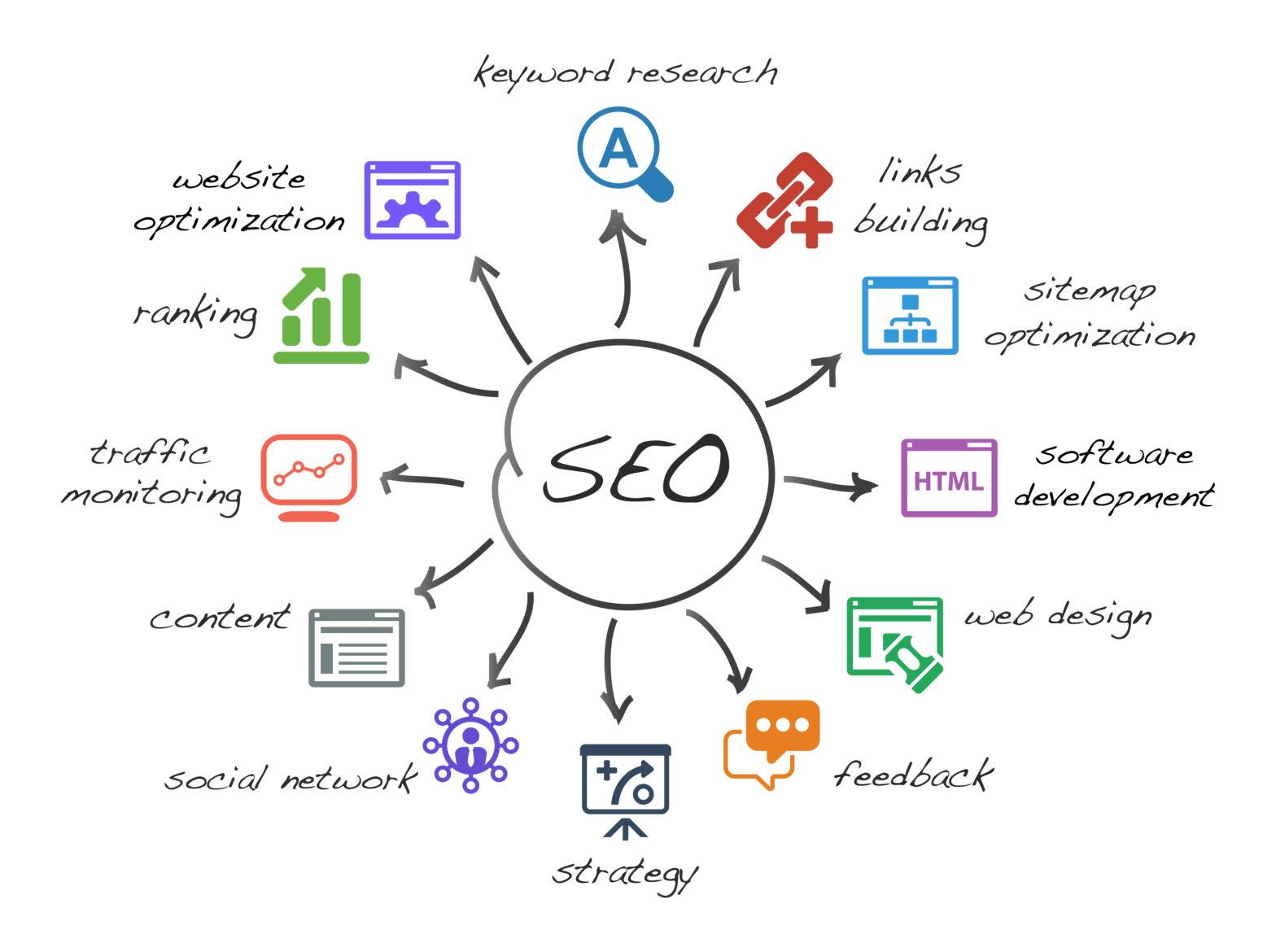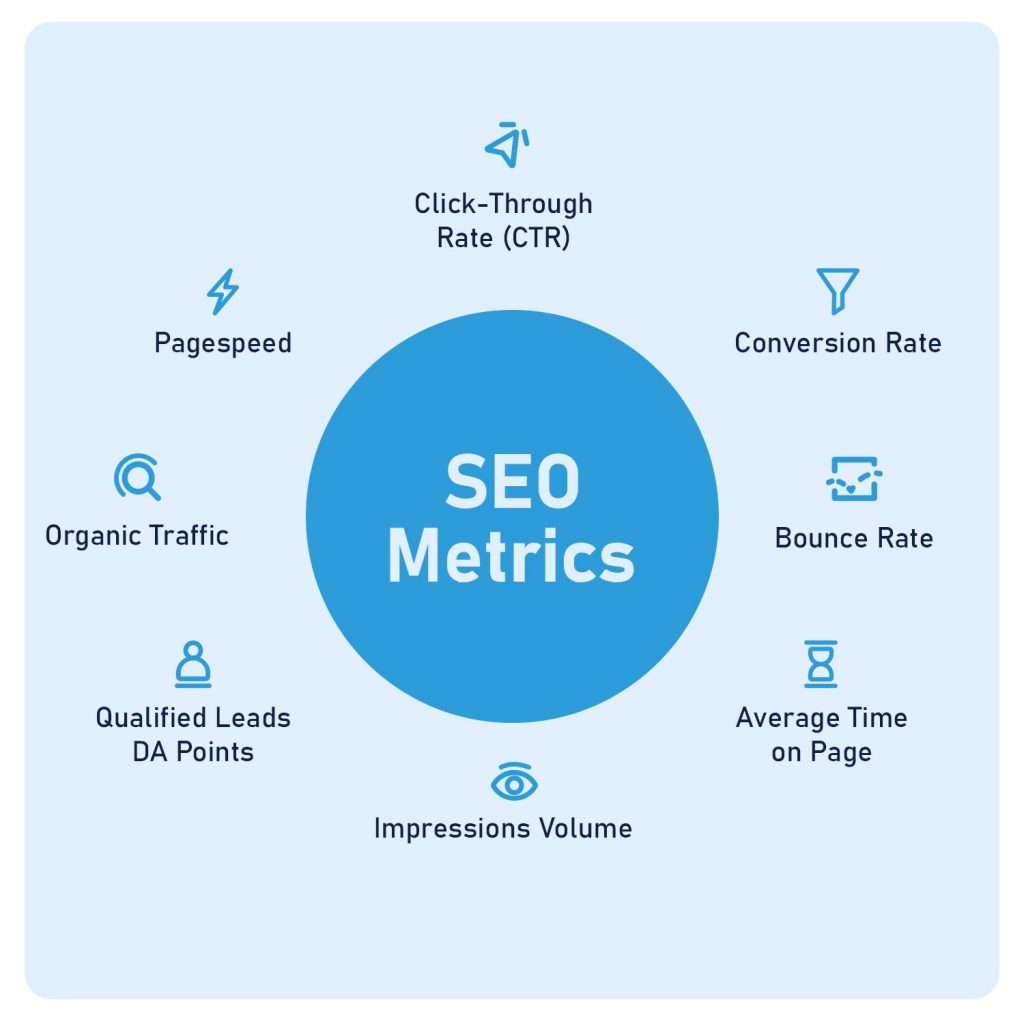Laying the Foundation for Success: Understanding Your Target Audience
Understanding your target audience is crucial for effective startup SEO strategies. It’s essential to recognize that your audience is not just a collection of individuals, but rather a group of people with unique needs, preferences, and behaviors. By grasping these nuances, you can tailor your SEO efforts to resonate with your audience and drive meaningful results.
To begin, conduct market research to gather insights about your target audience. This can involve analyzing industry reports, social media conversations, and customer feedback. Identify patterns and trends that reveal your audience’s pain points, interests, and motivations. This information will serve as the foundation for developing buyer personas, which are semi-fictional representations of your ideal customers.
Buyer personas help you understand your audience’s demographics, goals, challenges, and behaviors. By creating detailed personas, you can develop a unique value proposition that speaks directly to your audience’s needs. This value proposition should be woven throughout your website, content, and marketing efforts to ensure consistency and clarity.
For instance, if your startup offers a productivity app, your target audience might be busy professionals seeking to streamline their workflow. Your buyer persona might reveal that this audience values simplicity, ease of use, and customization. With this information, you can craft a unique value proposition that highlights your app’s intuitive interface, flexibility, and ability to boost productivity.
By understanding your target audience and developing a unique value proposition, you’ll be well on your way to creating effective startup SEO strategies that drive real results. Remember, your audience is the lifeblood of your business, and catering to their needs is essential for long-term success.
Keyword Research Strategies for Startups: Finding the Right Words
Keyword research is a crucial component of startup SEO strategies, as it helps you identify the words and phrases your target audience uses to search for your products or services. By incorporating these keywords into your website and content, you can increase your online visibility and drive more qualified leads to your business.
To conduct effective keyword research, start by brainstorming a list of relevant keywords and phrases related to your startup. Consider your products or services, industry, and target audience to generate a comprehensive list. Next, analyze your competitors’ websites and identify gaps in their keyword strategy that you can capitalize on.
Tool-based research is also essential for identifying relevant keywords and phrases. Utilize tools like Google Keyword Planner, Ahrefs, or SEMrush to analyze search volume, competition, and cost-per-click (CPC) data. This information will help you prioritize your keywords and develop a targeted SEO strategy.
Long-tail keywords are also a valuable component of startup SEO strategies. These phrases have lower search volumes, but are more specific and less competitive than generic keywords. By targeting long-tail keywords, you can attract more qualified leads and increase your conversion rates.
For example, if your startup offers a project management tool, a generic keyword might be “project management software.” A long-tail keyword, on the other hand, might be “cloud-based project management software for small businesses.” By targeting this long-tail keyword, you can attract more specific search queries and increase your online visibility.
By incorporating keyword research into your startup SEO strategies, you can develop a targeted and effective approach to driving more qualified leads to your business. Remember to continuously monitor and adjust your keyword strategy to ensure optimal results.
Optimizing Your Website for Search Engines: Technical SEO Essentials
A well-structured website is crucial for effective startup SEO strategies. Search engines like Google crawl and index websites to determine their relevance and authority. By optimizing your website’s technical aspects, you can improve its crawlability, indexability, and overall search engine rankings.
Start by ensuring your website has a clear and concise structure. Organize your content into logical categories and subcategories, and use descriptive URLs that include target keywords. This will help search engines understand your website’s hierarchy and content.
URL optimization is also essential for startup SEO strategies. Use descriptive and concise URLs that include target keywords, and avoid using unnecessary characters or parameters. This will help search engines understand the content of each page and improve its crawlability.
Meta tags are another critical component of technical SEO. Use descriptive and keyword-rich meta titles and descriptions to summarize each page’s content. This will help search engines understand the content of each page and improve its search engine rankings.
Header tags (H1, H2, H3, etc.) are also important for technical SEO. Use header tags to break up content and highlight important keywords and phrases. This will help search engines understand the content’s hierarchy and improve its crawlability.
Internal linking is also essential for startup SEO strategies. Use descriptive and keyword-rich anchor text to link to other relevant pages on your website. This will help search engines understand the content’s hierarchy and improve its crawlability.
Finally, ensure your website is mobile-friendly and responsive. With the majority of searches coming from mobile devices, a mobile-friendly website is crucial for startup SEO strategies. Use a responsive design that adapts to different screen sizes and devices, and ensure that your website loads quickly and efficiently.
By optimizing your website’s technical aspects, you can improve its crawlability, indexability, and overall search engine rankings. Remember to continuously monitor and adjust your technical SEO strategy to ensure optimal results.
Creating High-Quality, Relevant Content that Drives Results
High-quality, engaging content is a crucial component of startup SEO strategies. By creating content that resonates with your target audience, you can increase your online visibility, drive more qualified leads, and establish your brand as a thought leader in your industry.
To develop a content strategy that drives results, start by understanding your target audience’s needs and preferences. Conduct market research to identify their pain points, interests, and behaviors, and use this information to create content that addresses their needs.
Blog posts are an excellent way to create high-quality, relevant content that drives results. Use a conversational tone and focus on providing value to your readers, rather than promoting your products or services. Include relevant keywords and phrases to improve your search engine rankings, but avoid keyword stuffing and ensure that your content is engaging and informative.
Articles are another effective way to create high-quality content that drives results. Use a more formal tone and focus on providing in-depth information on a specific topic. Include relevant keywords and phrases to improve your search engine rankings, and use subheadings and bullet points to make your content more scannable.
Infographics are a visually appealing way to create high-quality content that drives results. Use a combination of images, charts, and graphs to present information in a clear and concise manner. Include relevant keywords and phrases to improve your search engine rankings, and use social media to promote your infographics and increase their visibility.
Videos are an excellent way to create high-quality, engaging content that drives results. Use a conversational tone and focus on providing value to your viewers, rather than promoting your products or services. Include relevant keywords and phrases to improve your search engine rankings, and use captions and subtitles to make your videos more accessible.
By creating high-quality, relevant content that drives results, you can increase your online visibility, drive more qualified leads, and establish your brand as a thought leader in your industry. Remember to continuously monitor and adjust your content strategy to ensure optimal results.
Building High-Authority Backlinks to Boost Your Startup’s Credibility
Acquiring high-authority backlinks is a crucial aspect of startup SEO strategies, as it significantly impacts a website’s credibility and search engine rankings. Backlinks from authoritative sources signal to search engines that a website is trustworthy, relevant, and worthy of citation. In this section, we will explore strategies for acquiring high-authority backlinks to boost your startup’s credibility.
Guest blogging is a popular and effective way to acquire high-authority backlinks. By writing informative and engaging content for other reputable websites, startups can establish themselves as thought leaders in their industry and earn backlinks to their own website. When selecting guest blogging opportunities, focus on websites with high domain authority, relevance to your industry, and a clear editorial policy.
Broken link building is another strategy for acquiring high-authority backlinks. This involves identifying broken links on other websites and offering to replace them with a working link to a similar article or resource on your own website. This approach not only helps to acquire backlinks but also contributes to the overall quality of the web by replacing broken links with functional ones.
Resource pages are another valuable source of high-authority backlinks. Many websites maintain resource pages that link to other relevant and useful websites in their industry. By creating a high-quality resource page on your own website, you can attract links from other reputable websites and establish your startup as a trusted resource in your industry.
In addition to these strategies, startups can also acquire high-authority backlinks by leveraging relationships with partners, suppliers, and customers. By requesting links from these entities, startups can tap into their existing networks and acquire backlinks from authoritative sources.
When acquiring high-authority backlinks, it’s essential to focus on quality over quantity. A single backlink from a highly authoritative source can have a more significant impact on your startup’s credibility than multiple backlinks from low-authority sources. By prioritizing quality and relevance, startups can build a strong backlink profile that supports their SEO strategies and drives long-term success.
Measuring and Tracking Your SEO Progress: Key Metrics to Monitor
Implementing effective startup SEO strategies requires continuous monitoring and evaluation of progress. By tracking key metrics, startups can assess the success of their SEO efforts, identify areas for improvement, and make data-driven decisions to optimize their online presence. In this section, we will discuss the importance of tracking SEO progress and provide an overview of key metrics to monitor.
Website traffic is a fundamental metric for measuring SEO success. By tracking the number of visitors to your website, you can gauge the effectiveness of your SEO strategies in driving organic traffic. Tools like Google Analytics provide detailed insights into website traffic, including the number of sessions, page views, and bounce rates.
Search engine rankings are another crucial metric for measuring SEO progress. By monitoring your website’s ranking for target keywords, you can assess the impact of your SEO efforts on search engine visibility. Tools like Ahrefs and SEMrush provide detailed insights into search engine rankings, including keyword positions and competitor analysis.
Conversion rates are a key metric for measuring the effectiveness of your SEO strategies in driving business outcomes. By tracking the number of conversions, such as form submissions, phone calls, or sales, you can gauge the ROI of your SEO efforts. Tools like Google Analytics and HubSpot provide detailed insights into conversion rates, including conversion tracking and attribution modeling.
Return on investment (ROI) is a critical metric for measuring the financial impact of your SEO efforts. By tracking the revenue generated by your SEO efforts, you can assess the ROI of your SEO strategies and make data-driven decisions to optimize your online presence. Tools like Google Analytics and ROI calculators provide detailed insights into ROI, including revenue tracking and cost analysis.
In addition to these metrics, startups should also track other key performance indicators (KPIs), such as social media engagement, email open rates, and customer satisfaction. By monitoring these KPIs, startups can gain a comprehensive understanding of their online presence and make data-driven decisions to optimize their SEO strategies.
When tracking SEO progress, it’s essential to use tools that provide accurate and reliable data. Google Analytics, Ahrefs, and SEMrush are popular tools that provide detailed insights into website traffic, search engine rankings, and conversion rates. By leveraging these tools, startups can make data-driven decisions to optimize their SEO strategies and drive long-term success.
Regularly reviewing and analyzing SEO metrics is crucial for identifying areas for improvement and optimizing startup SEO strategies. By tracking key metrics and making data-driven decisions, startups can stay ahead of the competition and drive long-term success in the ever-evolving digital landscape.
Common SEO Mistakes Startups Make (And How to Avoid Them)
Implementing effective startup SEO strategies requires a deep understanding of search engine optimization principles and best practices. However, many startups make common SEO mistakes that can hinder their online visibility and credibility. In this section, we will identify common SEO mistakes startups make and provide tips on how to avoid them.
Keyword stuffing is a common SEO mistake that involves over-optimizing website content with target keywords. This tactic can lead to penalties from search engines and negatively impact website rankings. To avoid keyword stuffing, startups should focus on creating high-quality, engaging content that incorporates target keywords naturally.
Duplicate content is another common SEO mistake that can harm website rankings. Duplicate content refers to identical or similar content that appears on multiple websites or web pages. To avoid duplicate content, startups should create unique and original content that adds value to their audience.
Neglecting technical SEO is a critical mistake that can impact website crawlability, indexability, and mobile-friendliness. Technical SEO involves optimizing website structure, URL optimization, meta tags, header tags, and internal linking. To avoid neglecting technical SEO, startups should prioritize technical optimization and ensure their website is crawlable, indexable, and mobile-friendly.
Ignoring local SEO is a common mistake that can harm local search engine rankings. Local SEO involves optimizing website content and online presence for local search queries. To avoid ignoring local SEO, startups should claim and optimize their Google My Business listing, create location-specific content, and build high-quality local citations.
Not tracking SEO progress is a critical mistake that can make it difficult to measure the effectiveness of startup SEO strategies. To avoid not tracking SEO progress, startups should use tools like Google Analytics and SEMrush to track website traffic, search engine rankings, conversion rates, and return on investment (ROI).
Not staying up-to-date with the latest SEO trends and best practices is a common mistake that can make it difficult for startups to stay ahead of the competition. To avoid not staying up-to-date with the latest SEO trends and best practices, startups should attend industry events, follow SEO experts, and experiment with new strategies.
By avoiding these common SEO mistakes, startups can ensure a solid SEO foundation and drive long-term success in the ever-evolving digital landscape. Remember, effective startup SEO strategies require ongoing effort and optimization to stay ahead of the competition and drive business outcomes.
By prioritizing SEO best practices and avoiding common mistakes, startups can create a strong online presence, drive website traffic, and increase conversion rates. By staying focused on SEO and continuously improving their strategies, startups can achieve long-term success and drive business growth.
Staying Ahead of the Competition: How to Continuously Improve Your Startup’s SEO
The world of search engine optimization (SEO) is constantly evolving, with new trends and best practices emerging every year. To stay ahead of the competition, startups must continuously improve their SEO strategies to drive online visibility, website traffic, and business growth. In this section, we will provide guidance on how to stay up-to-date with the latest SEO trends and best practices.
Attending industry events is a great way to stay informed about the latest SEO trends and best practices. Conferences, workshops, and webinars provide opportunities to learn from SEO experts, network with peers, and stay up-to-date with the latest developments in the field. Startups should prioritize attending industry events to stay ahead of the competition.
Following SEO experts is another way to stay informed about the latest SEO trends and best practices. SEO experts share their knowledge and expertise through blog posts, social media, and online communities. Startups should follow SEO experts to stay up-to-date with the latest SEO strategies and best practices.
Experimenting with new strategies is essential for continuously improving startup SEO strategies. Startups should test new SEO tactics, such as voice search optimization, video SEO, and artificial intelligence-powered SEO. By experimenting with new strategies, startups can stay ahead of the competition and drive online visibility.
Staying up-to-date with the latest SEO tools and technologies is also crucial for continuously improving startup SEO strategies. SEO tools, such as Ahrefs, SEMrush, and Moz, provide insights into website performance, keyword rankings, and competitor analysis. Startups should leverage SEO tools to stay ahead of the competition and drive online visibility.
Collaborating with other startups and SEO professionals is another way to stay informed about the latest SEO trends and best practices. Online communities, forums, and social media groups provide opportunities to share knowledge, ask questions, and learn from others. Startups should collaborate with other startups and SEO professionals to stay ahead of the competition.
By continuously improving their SEO strategies, startups can stay ahead of the competition and drive online visibility, website traffic, and business growth. Remember, SEO is a long-term strategy that requires ongoing effort and optimization to achieve success.
Startup SEO strategies should be flexible and adaptable to changing market conditions and search engine algorithms. By staying informed about the latest SEO trends and best practices, startups can adjust their SEO strategies to stay ahead of the competition and drive online visibility.
In conclusion, continuously improving startup SEO strategies is essential for driving online visibility, website traffic, and business growth. By attending industry events, following SEO experts, experimenting with new strategies, staying up-to-date with the latest SEO tools and technologies, and collaborating with other startups and SEO professionals, startups can stay ahead of the competition and achieve long-term success.






